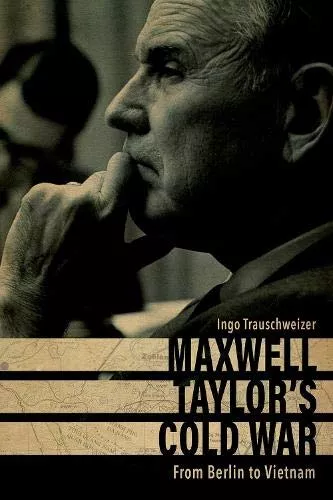Nathaniel Moir reviews "Maxwell Taylor's Cold War: From Berlin to Vietnam" by Ingo Trauschweizer

In Thirteen Days, the historical film about the Cuban Missile Crisis, the US military leaders argued for aggressive action. Gen. Maxwell Taylor, chairman of the Joint Chiefs of Staff, provided President John F. Kennedy a range of options, including an invasion of Cuba and the obliteration of Soviet-supplied missile sites there through an aerial first strike. The film's writers, historians Philip Zelikow and Ernest May, took pains to ensure the historical accuracy of events depicted. Their script certainly demonstrates just how close the world came to nuclear conflict. In his new book, Maxwell Taylor's Cold War, historian Ingo Trauschweizer (Ohio Univ.) shows the one-sided nature of the film's (and history's) portrayal of Maxwell Taylor.
More than any other US service chief in 1962–64, Taylor offered professional and carefully measured advice to the nation's political leaders; his voice of restraint contrasted sharply with Air Force Gen. Curtis LeMay's eagerness to pulverize Cuba....
Moir, Nathaniel L. "Maxwell Taylor's Cold War: From Berlin to Vietnam." Michigan War Studies Review, (May 6, 2020).
The full text of this publication is available via Michigan War Studies Review.



